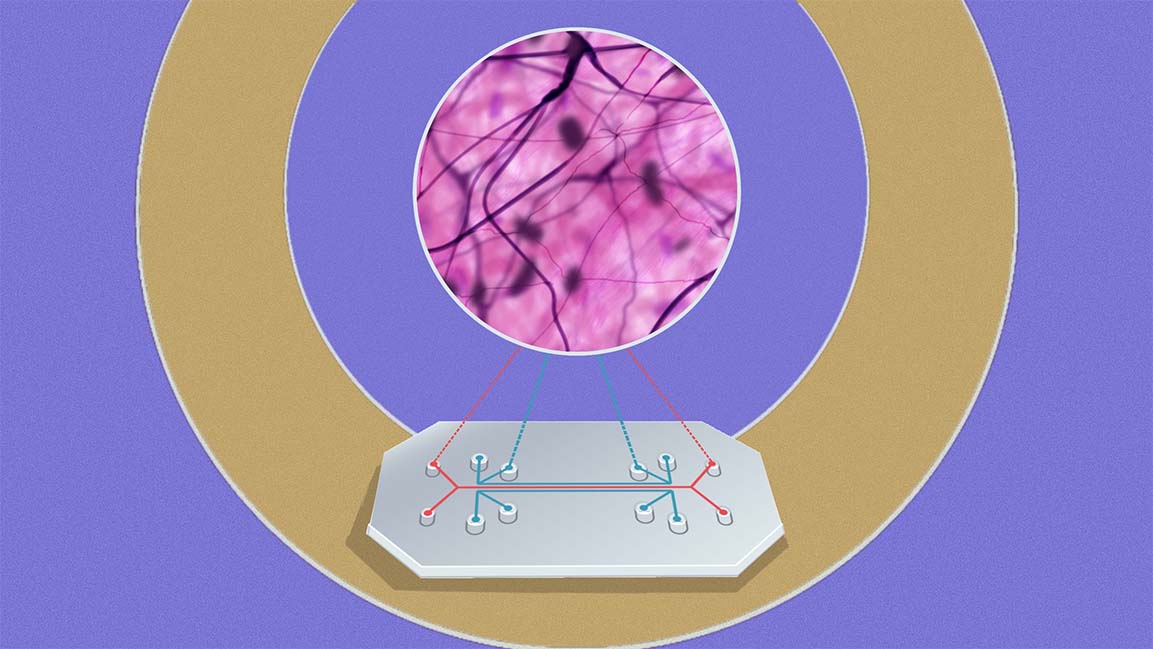- | 9:00 am
This startup aims to replace animal testing and personalize medicine for the MENA region
By using patients-on-a-chip, Quris AI-powered tech platform can better predict drug safety and reduce cost.

Did you know that 192 million animals are used globally in labs each year? And of the drugs that pass animal tests, a staggering 92% later fail in human clinical trials. And this costs pharmaceutical companies over $53 billion each year.
But better, perhaps, a revolutionary technology developed in the Middle East could soon begin to replace the use of animals—opening the door to streamlining the costly and inefficient drug development process. Quris, a Tel Aviv-based startup, is taking patient-on-a-chip drug testing to the next level with artificial intelligence (AI).
It has developed a chip-on-chip platform that allows automated testing of thousands of drugs on miniaturized patients-on-a-chip, while next-generation nano-sensors allow for continuous monitoring of the responses from each miniaturized organ to these drugs.
“Using this patented patient-on-a-chip system with the use of stem-cell-derived tissue and AI, we can effectively predict which drugs will work safely in humans,” says Isaac Bentwich, Founder and CEO of Quris.
“Our technology can test thousands of novel drug candidates on miniaturized patients-on-a-chip with speed and efficiency,” he adds.
TRANSFORMATION IN DRUG DEVELOPMENT
The technology mimics what happens inside the body. The algorithms generate millions of interactions between known drugs (safe drugs and toxic ones) and patients-on-chip (miniaturized interconnected human organs on a chip) and predict whether a drug will prove safe and effective in humans.
“It paves the way for transformation in drug development speed, safety, and associated costs,” says Bentwich.
The technology can not only better predict which drug candidate will be safe in the human body and for whom, avoiding the massive cost and time wasted on failed clinical trials, but also eliminate the ethical challenges of animal testing.
“The accuracy of our technology is between 80-90%, and this is constantly improving,” adds Bentwich.
And eventually, as the technology evolves, it could replace animal testing completely. The startup collaborates with the New York Stem Cell Foundation, which allows them to rapidly run experiments on miniaturized organs derived from hundreds of proprietary, genomically diverse stem-cell lines that train the Bio-AI platform to discern personalized drug safety.
PERSONALIZED MEDICATION
Recently, the startup has partnered with Mohamed bin Zayed University of Artificial Intelligence (MBZUAI) in Abu Dhabi to develop personalized medicine for the Middle East and North Africa (MENA) region.
“It’s a proactive approach to drug development. It focuses on advances in gene research for disease diagnosis and guides drug dosage and treatment. Thereby maximizing the results and minimizing the side effects,” says Bentwich.
The collaboration will establish a center of excellence in Bio-AI in Abu Dhabi, accelerating the development of safer, more highly personalized medications. “Using patients-on-a-chip that represent the MENA population, we can better predict drug safety by testing it on a chip than on animals.”
Bentwich says MBZUAI’s unique computational biology and machine learning capacities will “accelerate the development of new personalized and potentially life-saving medicines.”
Although Merck is already using Quris’ technology, whether this will be adopted broadly by drug companies remains to be seen. But given the strength of the technology, research, and data, it might happen soon.
“Pharmaceutical companies that leverage such technologies can save time and money and increase the safety of drugs developed, all while understanding the genetic differences between various ethnicities and the importance of personalized medication.”







































